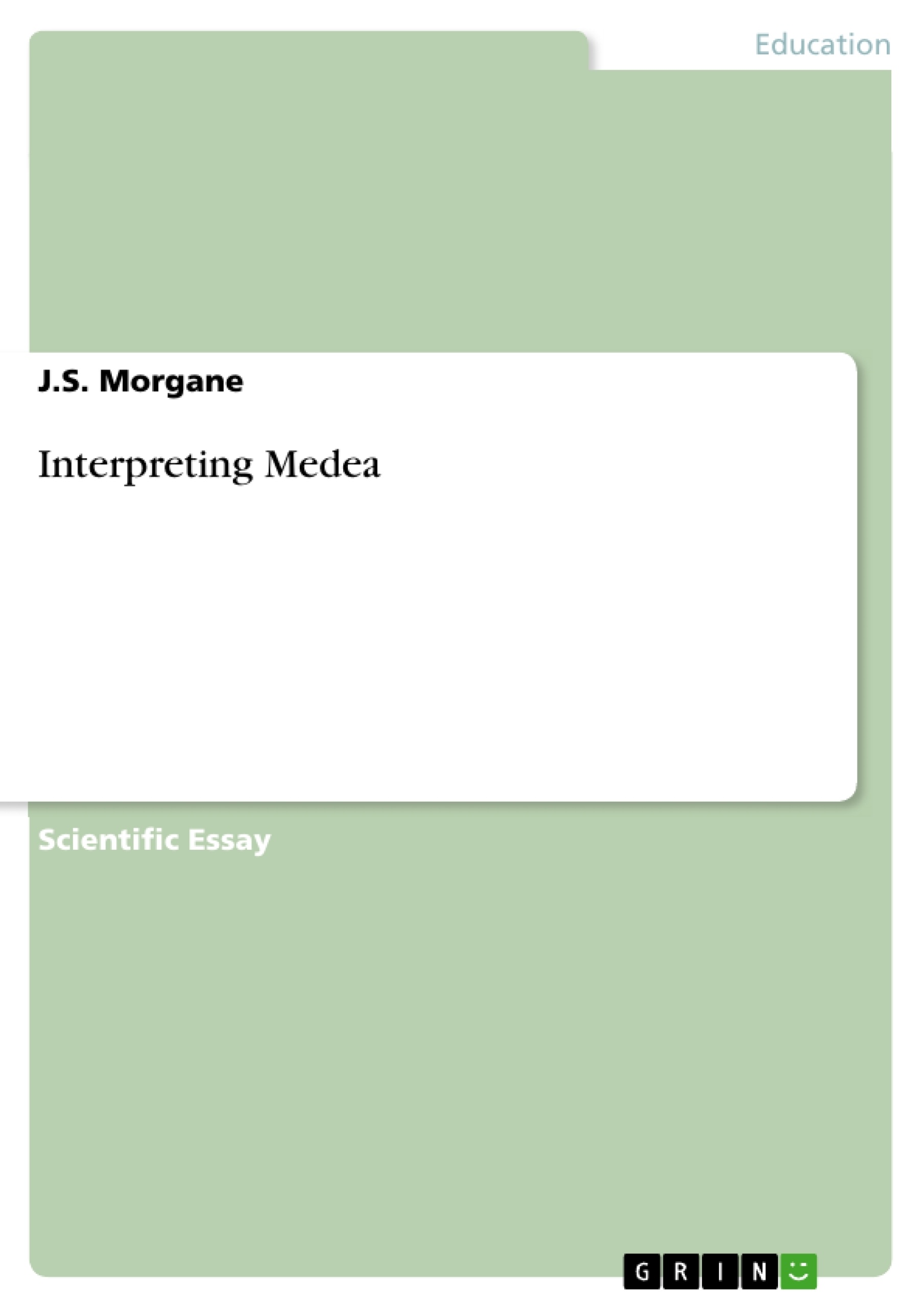Medea is a name familiar to everyone. The associations vary but we all know her to be the murderess of her children. This article presents the myth of Medea, the different legends and literary works, the literary history and the many changes in the portrayal of her story and character. The interpretations of her myth in different eras throws a light on our collective understanding of a figure contested throughout the ages. While Euripides allegedly introduces the child-murder as an act of revenge, the new feminist-oriented works try to lift the accusation of child-murder from Medea’s shoulders. Deconstructing the archetype of ‘mother’, French feminism discusses the notion of a patriarchal system of thought which systematically puts woman in the passive, silenced place of ‘the other’. What Medea becomes in the light of such philosophical thought is analysed here.
Table of Contents
- Introduction
- The Myth of Medea
- Medea after Euripides
- Medea, the Powerful
- Hecate, Triple Goddess
- Medea, the Terrible Mother
Objectives and Key Themes
This paper explores the myth of Medea through the lens of French feminism, examining how her story has been interpreted throughout history and the changing perspectives on her character. It aims to shed light on the evolution of our understanding of Medea, a figure consistently contested throughout the ages. The paper analyzes how feminist scholars, particularly Julia Kristeva and Luce Irigaray, challenge traditional interpretations and offer a new understanding of Medea's actions in the context of a patriarchal system that silences and marginalizes women.
- The evolution of Medea's portrayal throughout literary history
- The role of patriarchy and its impact on women's agency
- The deconstruction of the "mother" archetype
- The significance of Medea's "otherness" and her connection to the wild, barbaric world of Colchis
- The themes of betrayal, revenge, and the consequences of power struggles
Chapter Summaries
The introductory chapter provides an overview of the myth of Medea and its relevance to French feminism, setting the stage for the analysis that follows. The chapter "The Myth of Medea" delves into the origin of the legend, tracing its roots in Greek mythology and exploring the story of the Argonauts, Medea's role in their journey, and her subsequent flight with Jason. This chapter focuses on establishing the historical context and cultural significance of the myth. The following chapter, "Medea after Euripides," examines different interpretations of Medea's story by later authors, highlighting the shifts in perspective and the evolving understanding of her character. These chapters offer a chronological exploration of the myth's reception and the diverse ways in which Medea has been portrayed throughout history.
Keywords
The primary keywords for this text are: Medea, French Feminism, Julia Kristeva, Luce Irigaray, Patriarchy, Motherhood, "The Other," Mythology, Greek Legend, Argonauts, Colchis, Betrayal, Revenge, Child-Murder, Gender, Power, Social Structure.
Frequently Asked Questions
How does French feminism interpret the myth of Medea?
French feminism, through scholars like Julia Kristeva and Luce Irigaray, analyzes Medea as a figure marginalized by patriarchy, exploring her "otherness" and challenging the traditional archetype of the "mother."
What is the significance of Medea's origin in Colchis?
Colchis represents a wild, barbaric world in contrast to Greek "civilization," emphasizing Medea's role as a perpetual outsider or "the other" in a patriarchal social structure.
How did Euripides change the portrayal of Medea?
Euripides is credited with introducing the child-murder as a deliberate act of revenge, a portrayal that has dominated the collective understanding of Medea for centuries.
What themes are central to the literary history of Medea?
The main themes include betrayal, revenge, the consequences of power struggles, and the deconstruction of gender roles within a patriarchal system.
What does the term "The Other" mean in this context?
It refers to the philosophical concept of a group or individual (in this case, women/Medea) being systematically placed in a passive, silenced position by a dominant system of thought.
- Quote paper
- Dr.phil. J.S. Morgane (Author), 2008, Interpreting Medea, Munich, GRIN Verlag, https://www.grin.com/document/148601



